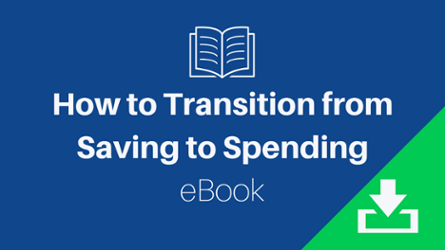Blindsided by Early Retirement

The age when you leave the workforce is one of the most vital factors that determine how much money you will have available in retirement. Working longer can be a good way to improve retirement security. After all, working longer not only provides more years to earn and save, it results in fewer years to rely on retirement savings. Many Americans seem to have gotten that message. According to the Center for Retirement Research, the share of workers reporting that they expect to work past age 65 rose from 16 percent in 1991 to 48 percent in 2018. However, their research also indicates that over a third of workers involuntarily retired earlier than anticipated.
Potential Risks Hiding in Your Blind Spot
Employment Problems
Layoffs, downsizing and reorganizations tend to impact older workers more. Even though it is illegal, ageism still exists in the workplace. Analysis done by ProPublica and the Urban Institute found that 56% of workers suffer at least one type of involuntary job separation after turning 50. Only 1 in 10 ever earns as much as they had previously.
Family Issues
Changes to spousal health or employment, changes to marital status, caring for a parent or grandchild are all occurrences that might impact retirement dates.
Health Issues
The Center for Retirement Research found this to be the biggest driver of early retirement. Both due to existing health issues that prevented people’s ability to work more than anticipated as well as new health problems that arose.
Trying to avoid an unexpected early retirement is clearly the ideal approach. Maintaining a healthy lifestyle, preventative care and keeping your employment skills and contacts relevant are important. Unfortunately, there are no guarantees and preparing for the unpredictable is always challenging. The best option to protect yourself is the most obvious yet also the most difficult – save more while you can to cushion the blow in case you have to retire early. Regardless of the reason that might lead to early retirement, or the situation you’re in when it happens, thought and planning, both for the short-term and long-term, need to be carefully executed.
How to Armour Yourself When the Unexpected Strikes
Review Budget
See where expenses can be cut, identify cash reserves, determine how possible severance payouts should be allocated, review current income sources and outstanding debt.
Cover Health Care
If you lost your insurance along with your job, you’ll need to find coverage until age 65 when you’re eligible for Medicare. You might be eligible to join a spouse’s workplace plan or maintain coverage through COBRA for a period of time. Healthcare.gov is another option and you won’t have to wait for open enrollment if you lost your job. You may also qualify for a substantial subsidy if your income is low enough.
Consider Part Time Work
Every dollar you earn is one less that you’ll have to pull from savings and investments. It could make the difference between what makes a plan work or not. Some part-time jobs even come with benefits like health insurance and retirement plans.
Consider Entrepreneurship
This is a growing trend for middle-aged and older workers. 3 in 10 entrepreneurs are over age 50, which is an increase of 50% since 2007 according to Paychex. Moreover, researchers from MIT and Northwestern University found that the highest success rates in entrepreneurship are seen among business founders who are older.
Take Social Security Now or Later?
This can be a critical source of retirement income and you have an important and permanent choice to make. Benefits can be applied for as early as 62 but will be substantially reduced. Delaying may provide generous long-term rewards. Your income, health and longevity as well as a spouse’s are significant considerations. Read more about this important topic here.
Take a Lump Sum or Annuity?
If your employer provided a pension, you’ll likely need to determine if you want to take it as a lump sum or as an annuity. Rolling a lump sum into an IRA provides more flexibility on the amount and timing of income and therefore more control regarding taxes. It’s possible you can better invest the funds to keep up with inflation as most pensions don’t have cost of living adjustments. The long-term viability of your employer is also a consideration. If your employer fails, you may not receive the full pension you are due. Finally, you can leave unused funds to beneficiaries.
An annuity option takes the investment risk off of you. You likely will also have the option to choose survivor benefits. If you are not confident that you can successfully invest money and control withdrawals throughout retirement, taking an annuity that will pay income for life may be the better choice.
Tap Investment Accounts
If income sources aren’t enough and you’ve gone through severance or emergency savings, you might have to turn to your investment accounts. We’ve written before on the importance of developing a good withdrawal strategy. Be mindful of not only taxes and early withdrawal penalties, but the strategies to avoid them. Know the rules on withdrawing from annuities and life insurance, Roth and Traditional IRAs, 401(k)s, 403(b)s and other workplace plans. You can possibly avoid penalties using the Rule of 55, 72(t) distributions, loans from Solo 401(k)s and special exceptions like qualified education expenses to name a few.
Review your Portfolio
Early retirement might warrant a reallocation of your mix of equities, fixed income and cash. Funds that you once assumed wouldn’t be needed for ten years or more might need to be tapped earlier. You may need to invest more conservatively. However, you will likely still need to allow for the growth that equities provide to keep up with inflation.
Early retirement can be a wonderful thing when you are prepared for it. However, life will always throw curve-balls so be sure to have a Plan B. Even the most thoughtful and diligent plan doesn’t always go according to … well ... plan.
Comments
Market Knowledge
Read the Blog
Gather insight from some of the industry's top thought leaders on Exchange Capital's team.
Exchange Capital Management, Inc.
110 Miller Ave. First Floor
Ann Arbor, MI 48104
(734) 761-6500
info@exchangecapital.com


